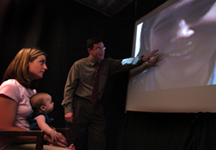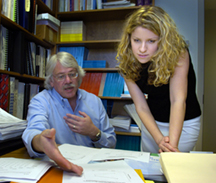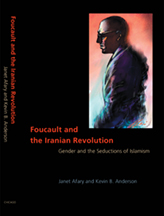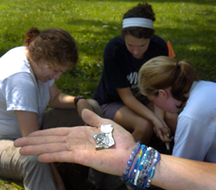August
2005
CLA UPDATE FOR FACULTY & STAFF
Tom Adler
 |
Dear Colleagues,
I hope everyone has had a productive yet restful summer break.
As most of you know, on June 1, I became Interim Dean of the College of Liberal Arts when Toby Parcel left the position to serve as Special Assistant to the Provost. I want to thank Toby for her leadership and hard work during her three years as head of our college. Jeffrey Vitter, Dean of the College of Science, has been appointed chair of the search committee for our next dean, whose members will be named early this fall.
Many Liberal Arts faculty and staff remained on the job through the summer. Some led Study Abroad courses in Greece, Brazil and Italy, to name just a few places. Others continued with their research projects, community outreach programs, or taught courses, including the Archaeological Field School. The news stories below highlight just some of the Liberal Arts activities from this summer.
Please remember to contact Amy Patterson Neubert at the Purdue News Service if you are involved in research or programs that may interest the news media.
Best wishes to all of you as you prepare for the start of another academic year.
Tom Adler
RESEARCH
Noise, visual cues affect infants' language development
Even moderate background noise can affect how infants learn language at an early and crucial time of their development, according to new research from Liberal Arts.
George Hollich
demonstrates his language study
 |
"This research reaffirms how important it is for a child to see the face of a person while hearing him or her speak," says George Hollich, an assistant professor of Psychological Sciences.
"This is the first study to show how easily children are distracted when the background noise is at the same loudness as the person talking to the child. We found that even soft noise can be a problem."
Hollich, who is director of Purdue's Infant Language Laboratory, teamed with Rochelle S. Newman, assistant professor of Speech-language Pathology at the University of Maryland, and the late Peter W. Jusczyk, a former professor at Johns Hopkins University. Their paper was published in the May/June issue of the journal Child Development.
Background noise in the average household – such as other children playing or watching television – can pose the same problem for children that an older adult with hearing loss encounters at a cocktail party.
"Older adults who are hard of hearing use their other senses, such as vision, to better understand speech," Hollich says. "We thought this might be what infants do when they are in a noisy environment. Struggling to hear can be annoying for adults, so just imagine how distracting it is for infants who are trying to learn a language."
More
Chinese religious trends attracting scholars' attention
While issues of China's trade and human rights policies dominate the headlines, a professor says a dramatic growth in religious activity in the country also will play a role in China's internal politics and international relationships.
Fenggang Yang
 |
"China's increasing global role is undisputed in economics and politics, but religious changes – China's ongoing transition from a secular state to a religious state – are often overlooked in the West," says Fenggang Yang, an assistant professor of Sociology.
"Religion plays increasingly important roles in China. In reform-era China since 1979, Buddhism, Daoism and traditional folk beliefs have been revived, and Christianity and some new religions grew so fast that it caused great concern for the government.
"The Chinese government needs to be prepared to handle new religious groups and adapt to religious trends, or it could create civil problems or international tensions. In today's world politics, would China tilt toward the Islamic world or to the Judeo-Christian world? If the government suppresses Christianity, China could alienate Western trading partners. However, if China favors Buddhism, then its ties with Japan and South Asian countries could be strengthened."
Yang, a member of the Religious and Asian Studies programs in Purdue's College of Liberal Arts, is directing a three-year project focused on training Chinese scholars to study religion and improve Americans' understanding of religious issues in China.
More
Listen! Comfort a cornerstone for many female friendships
Most women are less forgiving of other women who lack comforting skills than of men who lack such skills, according to new research on interpersonal relationships.
Brant Burleson and
Amanda Holmstrom
 |
"Yet, in the same study we found just the opposite reaction for the few women who identify themselves as the most feminine," says Brant R. Burleson, professor of Communication.
"Stereotypes say women should be better comforters. So, we expected to find that women would hold women to a higher standard, and when women did not meet these expectations, they would not be liked by others. However, this standard did not seem as important to women who considered themselves to be the most feminine."
How women valued their gender identity made a difference, he says. For example, women who were deeply attached to a traditional feminine role preferred female comforters over men even when both of those people used well-meant, but ineffective comforting messages.
"We think these women were paying attention to the gender of the person giving the message and not the content or effectiveness of the message," Burleson says. "But additional study is needed to verify this explanation."
Burleson; Amanda J. Holmstrom, a Purdue doctoral student from Farmington, Ill.; and Susanne M. Jones, assistant professor of Communication Studies at the University of Minnesota, conducted the research. Holmstrom, the paper's lead author, presented the team's findings at the International Communication Association annual meeting on May 28 in New York.
More
New book on philosopher Foucault's support for radical Islamism
At a time when the United States is watching the religious and political changes in the Middle East, especially in Iran, two professors are turning to writings published 25 years ago to develop a better understanding of radical Islamism – and the Western response to it – through the writings of the French philosopher Michel Foucault, who reported on the Iranian revolution.
Foucault and the Iranian Revolution
 |
In June, Janet Afary, an associate professor of History and Women's Studies, and Kevin B. Anderson, an associate professor of Political Science, published Foucault and the Iranian Revolution: Gender and the Seductions of Islamism (University of Chicago Press, $60 hardcover, $24 paperback). In the appendix, Foucault's first-hand reports on the 1979 Iranian revolution are translated, many of them for the first time.
"Michel Foucault is one of the best known and most widely read philosophers of our time," Anderson says. "There are hundreds of books and articles about Foucault, and his influence in areas including History, Philosophy, Social Sciences, and Education. However, his reporting on the Iranian revolution is not well known because his stint as a journalist during the Iranian revolution is often ignored. Our book is really the first complete resource in English that highlights his writings about Iran."
More
English sounds like one language, but it's really not
Americans need to realize that English as they know it is not what the rest of the world knows, says a language expert.
"English is a hot topic right now because the United States is seeing a growing population that does not speak English, and other countries, such as China, are working very hard to make sure their children and adults can speak English," says Margie Berns, professor and director of Purdue's English as a Second Language Program in the Department of English.
As the language is picked up by other cultures, there will be differences in how words are pronounced, and the meaning of words and phrases can vary among cultures to suit local communication needs, Berns says. American English went through the same process when it became distinct from British English in the 18th century.
"Take a simple greeting," Berns says. "In some African English-speaking communities, a person will greet another by saying, 'You have put on some weight.' Many Americans would be offended with this greeting, but in Africa, it is a compliment that acknowledges how healthy and prosperous a person looks.
"Failing to understand these differences can lead to problems in international relations, business and even travel."
More
Atomic bombings still part of political diplomacy
The past few weeks have been filled with differing opinions on how the United States should commemorate the 60th anniversary of the atomic bombings of Japan, and a political Communication expert talked about how President Ronald Reagan used the bombings as a part of his diplomacy to end the Cold War.
"This is certainly a polarizing topic," said Buddy Howell, an instructor of Communication who specializes in presidential rhetoric and the Cold War. "Some people say the use of the atomic bombs had peaceful intentions to end the war. Others consider it an act of terror. Sixty years later, it still matters to us how we, and our presidents, talk about and remember events like this because it defines us as Americans."
On Aug. 6, 1945, the United States dropped the first atomic bomb on Hiroshima, Japan, in an attempt to end War World II. A few days later, a second bomb was dropped on Nagasaki, and only then Japan surrendered. The bombings killed hundreds of thousands of people instantly and also contributed to the start of the Cold War and nuclear arms race with the former Soviet Union.
Forty years later, President Reagan spoke of the bombings when trying to reconcile with Mikhail Gorbachev, the last leader of the Soviet Union, says Howell, who studies presidents' roles as diplomats-in-chief.
"Reagan referenced the bombings to make a point that if the United States wanted to attack the former Soviet Union, it would have had to when America had a monopoly on atomic power in the 1940s," Howell said. "Now after 9/11 and other recent events, it will be most interesting to see how the current administration talks about the bombings. I expect the current administration will follow Reagan's lead in using this event as a way to promote diplomacy and freedom."
More
Branding may mean better business for mental health industry
Public funding cuts and aging baby boomers are just two reasons why the mental health industry is pursuing the benefits associated with branding, says a marketing expert.
"The stigma traditionally associated with mental illnesses – such as depression, anxiety or schizophrenia – and other behavioral issues make developing a brand more of a challenge," says Jay Wang, an assistant professor of Communication. "Stigmas also can keep people from seeking the services they need, and that is why a brand can help consumers realize how they can benefit from this area of the health-care industry."
Branding is part of the marketing plan a business uses to establish a relationship with consumers by differentiating itself from competitors while building loyalty and comfort with the company's services or products, Wang says. General health-care services and pharmaceutical companies have embraced branding. The mental health industry, especially community mental health service providers, is looking more closely at branding because of potential new clients among aging baby boomers and pressure brought about by reduced federal and state funding.
More
Expert speaks about Srebrenica massacre on 10th anniversary
Talking about the Srebrenica massacre that took place 10 years ago in the former Yugoslavia is more important now than ever, says an Eastern European historian.
"A decade after the worst massacre Europe has seen since the days of Adolf Hitler and Joseph Stalin, the Serbian people are just beginning to confront what their military heroes did in the name of patriotism," says Charles Ingrao, a professor of History and director of the Scholars' Initiative, a group of more than 250 scholars who are trying to set the record straight about what happened in the former Yugoslavia.
"American and European officials were criticized by the international media and human rights groups for their inconsistent and often cynical policies in Bosnia. This anniversary is a reminder of the terrible cost of inaction, be it in Bosnia or Rwanda in the 1990s or in Sudan's Darfur today."
On July 11, 1995 more than 7,000 Bosnian Muslims at Srebrenica were massacred by the Serbs. This event prompted United States, French and British air strikes against the Serbs, followed by a peace agreement signed in Dayton, Ohio. In 1999 NATO launched new air strikes against Yugoslavia following the commission of additional crimes in Kosovo by Serbian forces, led by Serbian President Slobodan Milosevic.
To mark the 10th anniversary of the Srebrenica massacre, Ingrao spoke in London, Sarajevo, New York City, Belgrade, Pristina and the Bosnian Serb capital of Banja Luka.
More
Here's a venue where spellcheck won't work
Few adults today would be able to compete in a spelling bee without using spellcheck on their computers, says a language expert.
"Americans' spelling skills are not a priority as they once were," says Margie Berns, professor of English. "A person's spelling skills are likely to decline if he or she doesn't write or read and learn new words. At the same time, what some will call sloppy, lazy spelling is really language that is evolving. Change is what keeps a language alive."
Languages, including English, change for many reasons. One occurs when non-native speakers of the language become more prevalent in a community resulting in a fusion of languages that can influence spelling. Berns says the increase in Spanish-speaking people in America is likely to have such an effect.
More
OTHER NEWS
Table designs honored at international exhibit
Twenty furniture and appliance designs by Liberal Arts students have been honored at the world's largest exhibition of furniture in Italy.
Industrial Design students
and award winning tables
 |
Five students and one lecturer from the area of Industrial Design, which is housed in the Division of Art and Design, were invited to the 44th Salone Internazionale del Mobile, in Milan, Italy, in April. The exhibition attracted 190,000 furniture-industry representatives from around the world.
"This is the first time Purdue was invited to this show, which certainly provides a tremendous amount of visibility for our Industrial Design program," said Steve Visser, associate professor and area representative of Industrial Design in the Patti and Rusty Rueff Department of Visual and Performing Arts.
"The items selected for display are from three industrial design classes. More than a dozen students contributed to the designs, but five students' table designs really stood out and demonstrated how basic materials, such as glass, plastic and bent tubing, can be used to create aesthetic designs."
More
Sports program keeps children moving for fitness, fun
Purdue's National Youth Sports Program continues to attract students with its emphasis on physical fitness, but this is just one component of the five-week program.
NYSP Medical screening
 |
"National Youth Sports Program at Purdue has grown into so much more than a place where children can learn how to play new sports," says Thomas Templin, head of the Department of Health and Kinesiology and program administrator.
"The program is about healthy living, developing leadership skills, participating in community outreach and building self-confidence. The campers keep coming back because they are excited about the program's activities, and their parents realize the opportunities this program provides their youngsters."
The number of campers has doubled since the camp started with 200 in 2002.
The fourth annual camp took place June 16 through July 22. The camp is free for children ages 10-16 who are referred by their schools in Tippecanoe and White counties.
More
Archaeological class digs past to prepare students, teachers for future
Anthropologists, Indianapolis students and Indiana teachers will dig up history this summer at Purdue's Archaeological Field School.
Archaeology
Field School
 |
From June 20 to July 29, Purdue students were in Mulberry, Ind., participating in a six-week excavation in the back yard of the Hovde house.
"Archaeology is like a puzzle," says field school director Deborah Rotman, an assistant professor in Purdue's Department of Sociology and Anthropology. "We piece together information from historical records and clues from the site to learn about its history. To solve the puzzle, archaeology requires skills in science, history and mathematics."
After the fieldwork is completed, artifacts will be processed in a laboratory on campus. Every summer, field school students are taught basic methods used in contemporary archaeology, including site surveying, mapping, excavating and computer-based analysis of archaeological data. Visitors from Project Archaeology and Science Bound will be introduced to these topics and also will have a chance to dig with the Purdue students.
More
FACULTY & CLA HONORS
Books
Dino Franco Felluga, associate professor of English – The Perversity of Poetry: Romantic Ideology and the Popular Male Poet of Genius, (State University of New York Press).
Antonio D. Tillis, assistant professor of Foreign Languages and Literatures and African American Studies, Manuel Zapata Olivella and the "Darkening" of Latin American Literature, (University of Missouri Press).
Appointments
– LuAnn Keyton was appointed director of Information Technology in the College of Liberal Arts. Keyton has worked at Purdue since 1996 in the areas of electrical and computer engineering and computing in student services. She started June 13, and she will be responsible for the development, utilization and management of computer resources in the College of Liberal Arts.
Honors & Awards
– A bicycle design by Scott Shim, an assistant professor of Industrial Design in the College of Liberal Arts, and two former Purdue students was awarded the Industrial Design Excellence Awards' Gold 2005 in the Design Explorations category.
SHIFT
 |
The tricycle-like bike, called SHIFT, helps a child learn how to ride without training wheels or help from an adult. The two rear wheels shift inward to merge into one wheel as the child gains momentum and learns to balance. Recent Purdue Visual and Performing Arts graduates, Ryan Lightbody, who now works at Strategix Vision in Seattle, and Matt Grossman, from Carmel, Ind., collaborated with Shim. The competition is sponsored by BusinessWeek magazine and is run independently by the Industrial Designers Society of America. The Purdue design also topped 853 entrants from 56 countries to win the $15,000 first prize in the 9th International Bicycle Design Competition in Taiwan earlier this year. Industrial design is housed in the Patti and Rusty Rueff Department of Visual and Performing Arts.
– Robert Perrucci, professor of Sociology, will receive The Lee Founders Award this August at the annual Society for the Study of Social Problems meeting in Philadelphia. This lifetime achievement award, which was established in 1981, recognizes scholars in the areas of research, teaching and service-learning committed to social-action programs that promote societal justice. Perrucci studies the impact of the global economy on workers, communities and structures of inequality.
– Mangala Subramaniam, an assistant professor of Sociology and Women's Studies and faculty member of Asian Studies, received one of five grants from the American Sociological Association's Fund for the Advancement of the Discipline. This is a competitive small grants program funded by matching grants from the association and the National Science Foundation. Using advanced statistical techniques, Subramaniam is analyzing how poor women in rural India are mobilizing and organizing to seek self-respect as well as to improve their working and living conditions.
– Rick Paul, professor and chair of the Art & Design Division in the Patti and Rusty Rueff Department of Visual and Performing Arts, was one of six artists selected for an exhibition at the New Harmony Gallery of Contemporary Art. Paul's sculpture, "BigG," was generated with 3D StudioMax software and constructed from quarter-inch plywood. The exhibit closed June 30. The gallery's founding director, John Begley, selected Paul for this exhibit, which is celebrating the gallery's 30th anniversary.
– Thomas J. Templin, professor and head of the Department of Health and Kinesiology, began his term as president of the National Association for Sport and Physical Education at the group's national meeting in Chicago. The association is a nonprofit professional education organization that promotes basic knowledge about sport, physical activity and physical education among professionals and the general public. Templin will serve as the national spokesperson for the group as it advocates quality sport, physical activity and physical education programs.
– Bich Minh Nguyen, continuing lecturer in the Department of English's Creative Writing Program, was awarded the PEN Jerard Fund Award for her manuscript Stealing Buddha's Dinner. This honor is awarded to a work-in-progress of general nonfiction "distinguished by high literary quality" by a woman early in her career. The award is given by PEN American Center and the New York Community Trust. The award, including $5,500, was presented to Nguyen on May 23 at a ceremony in New York's Lincoln Center.
EXPERTS IN THE NEWS
South Bend Tribune –
Noisy environment may affect children's grasp of language
(George Hollich, Department of Psychological Sciences)
Forbes Magazine –
Shhh! Baby's learning
(George Hollich, Department of Psychological Sciences)
Glenwood Springs (Colorado) Post Independent –
Latest Storm King lessons focus on human behavior
(Jennifer Thackaberry, Department of Communication)
Chicago Tribune –
Doubts cast on pull of absentee vote in next election
(James McCann, Department of Political Science)
The Herald, Dubois County, Ind. –
Time needed to learn unfamiliar language
(Margie Berns, Department of English)
Indianapolis Star –
Children's fitness is fun and games
(Thomas Templin, Department of Health and Kinesiology)
Lafayette Journal and Courier –
Sports program helps youth learn fitness, social skills
(William Harper, Department of Health and Kinesiology)
U.S. Scholar discusses Afro-American literature and the history of hip hop culture in Rio de Janeiro
(Antonio Tillis, Department of Foreign Languages and Literatures and African American Studies)
Savannah Morning News (Georgia) –
Purdue professor promotes one of Georgia's forgotten founders
(Frank Lambert, Department of History)
Chicago Tribune –
Don't hang up: Alone in a crowd
(Louis Rene Beres, Department of Political Science)
San Antonio Express-News –
Study says diet sodas may tip scales to obesity
(Susie Swithers and Terry Davidson, Department of Psychological Sciences)
Click here to view a complete list of Purdue experts in the news.
Any story ideas or news tips can be sent to Amy Patterson Neubert at the Purdue
News Service, 494-9723, apatterson@purdue.edu
Purdue News Service: 494-2096; purduenews@purdue.edu |

